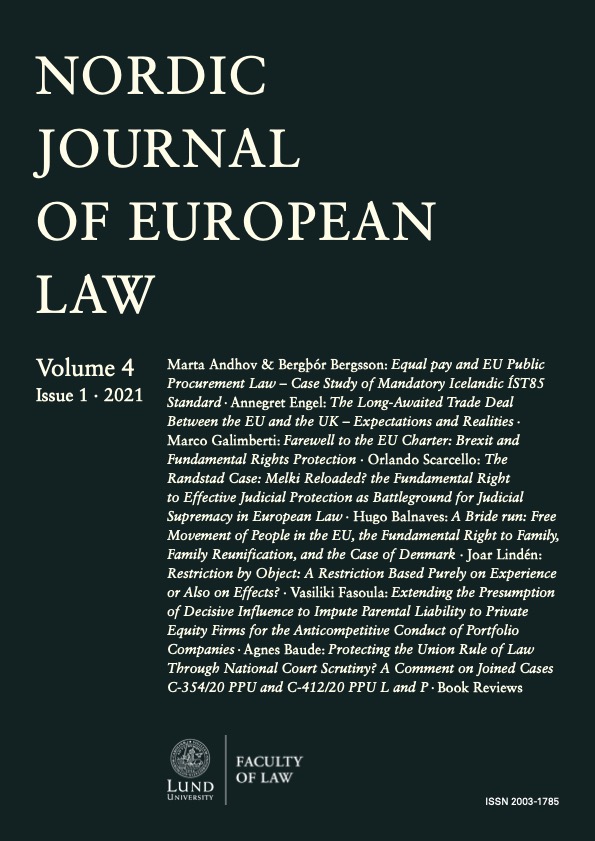Extending the Presumption of Decisive Influence to Impute Parental Liability to Private Equity Firms for the Anticompetitive Conduct of Portfolio Companies
Main Article Content
Abstract
The private equity firms' goal is to increase the profitability of their portfolio companies, run them up to an initial public offering and exit them. This includes improvements in corporate governance and management practices. The operational economic model of private equity firms is that of financial investors and not that of industrial owners of subsidiaries. However, this economic distinction makes no legal difference when engaging a company’s parental liability for the anticompetitive behaviour of its subsidiaries under the European competition law provisions. This was the case when, on 27 January 2021, the Court of Justice of the European Union rejected the Goldman Sachs Group’s appeal against a judgment of the General Court of the European Union validating the fine the Commission had imposed for the participation of one of its indirectly owned subsidiaries in a cartel during the period it was under Goldman Sachs’ control. For the first time, the Court extended the presumption of the effective exercise of decisive influence to the majority of the voting rights, and any involvement in the day-to-day business of the portfolio company was further proof of this actual exercise. Revitalising the debate of the fundamentals of parental liability in competition law and juxtaposing the differences between European and American legal tradition, the Goldman Sachs case leaves no choice to equity firms but to take strict measures and to harden the negotiations before any acquisition takes place, hoping to escape the strict application of the single economic entity doctrine.
Article Details

This work is licensed under a Creative Commons Attribution-NonCommercial-NoDerivatives 4.0 International License.

